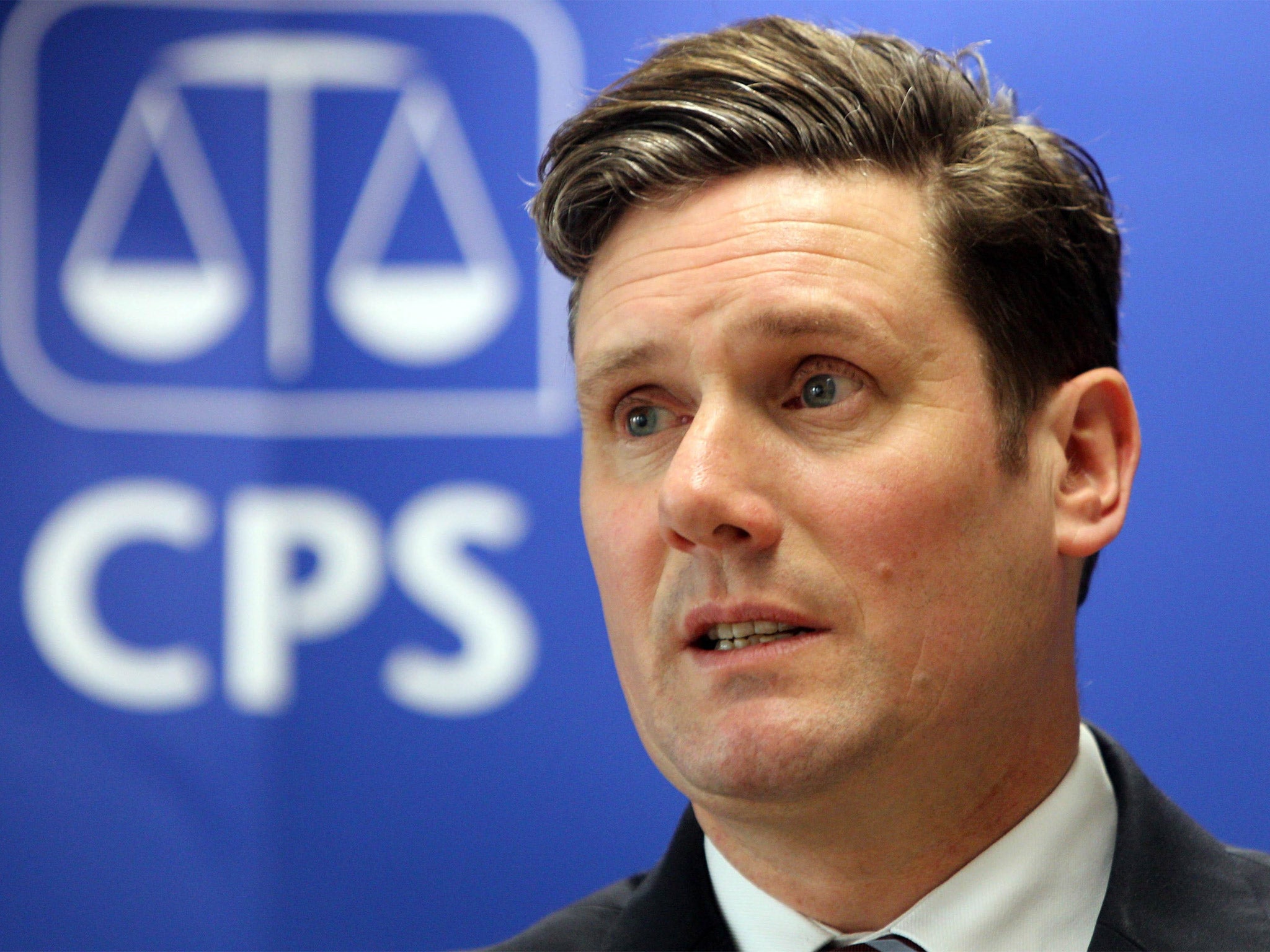Disarray as DPP contradicts new guidance on naming of suspects
Keir Starmer defies Home Secretary with insistence that ‘blanket rule’ on arrest is wrong

Controversial plans to protect the identity of suspects arrested by police were in disarray last night after the Director of Public Prosecutions called for more “wriggle room” to name suspects before they were charged.
Keir Starmer QC, who steps down in October as head of the Crown Prosecution Service, said there could be no “blanket rule” that nobody is named at the point of arrest. His comments follow publication of new guidelines by a new police organisation that would see those arrested named in only a few circumstances, such as a clear threat to life.
Critics claim that the new guidelines represent an attack on open justice which could potentially lead to innocent people being named online, or hampering further victims coming forward after a suspect was named.
Police in Lancashire confirmed this month that publicity surrounding the arrest of Stuart Hall, the former BBC presenter who pleaded guilty to a string of sex attacks on girls, led to more of his victims coming forward.
The College of Policing said that its 12-page document was designed to standardise police procedures across the 44 police forces in England, Wales and Northern Ireland, but The Independent found that some forces intended to continue with their own policies.
Senior officers said that forces had been encouraged not to confirm the identities of suspects when names were put to them by journalists. However, one large force said it would still confirm names to prevent “mistaken reporting”, while Scotland Yard said it would not do so in such circumstances. Another force said it was reviewing its policies after initially emailing staff to say there would be no changes.
The guidance also appeared to contradict Home Secretary Theresa May who wrote last week: “Where the press have already identified the suspect and asked for confirmation from police, the police should confirm it. There should be a presumption of transparency throughout the system.”
The document said that forces must balance the individual’s right for a private and family life with the rights of freedom of expression and the need to ensure fair trials. “Save in clearly identified circumstances, or where legal restrictions apply, the names or identifying details of those who are arrested or suspected of a crime should not be released by police forces to the press or the public,” the guidance said.
Appearing before the House of Commons Justice Committee, Mr Starmer said: “I’m for a blanket rule on charge, I’m not for a blanket rule on arrest. I would certainly want wriggle room to name in certain types of cases.”
The guidance also called for police to log details of any friendships or relationships with journalists outside of their work. David Allen Green, a lawyer with Preiskel & Co, said that any blanket sanctions against police officers for not declaring their relationships with journalists could be a breach of Article 8 of the European Convention on Human Rights, which protects the right to a private life. “It’s worryingly vague,” he said.
Chief Constable Andrew Trotter, spokesman for the Association of Chief Police Officers, said the guidance put journalists on the same footing as contractors seeking work from a force.
“For quite close personal friendships between police officers and journalists, outside of their normal role, like going to football matches, I think it’s helpful for an employer to know about that relationship,” he said.
Bookmark popover
Removed from bookmarks